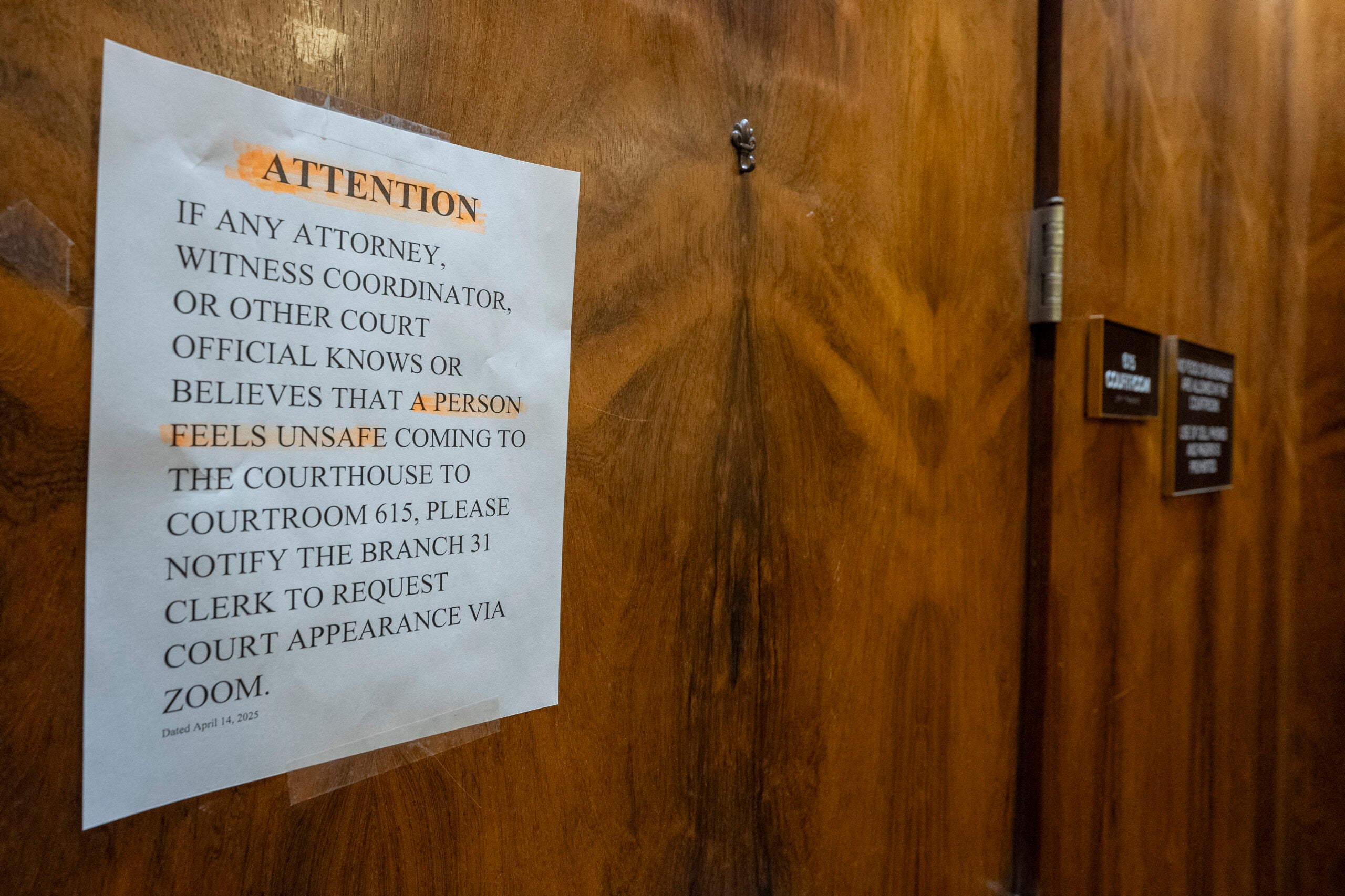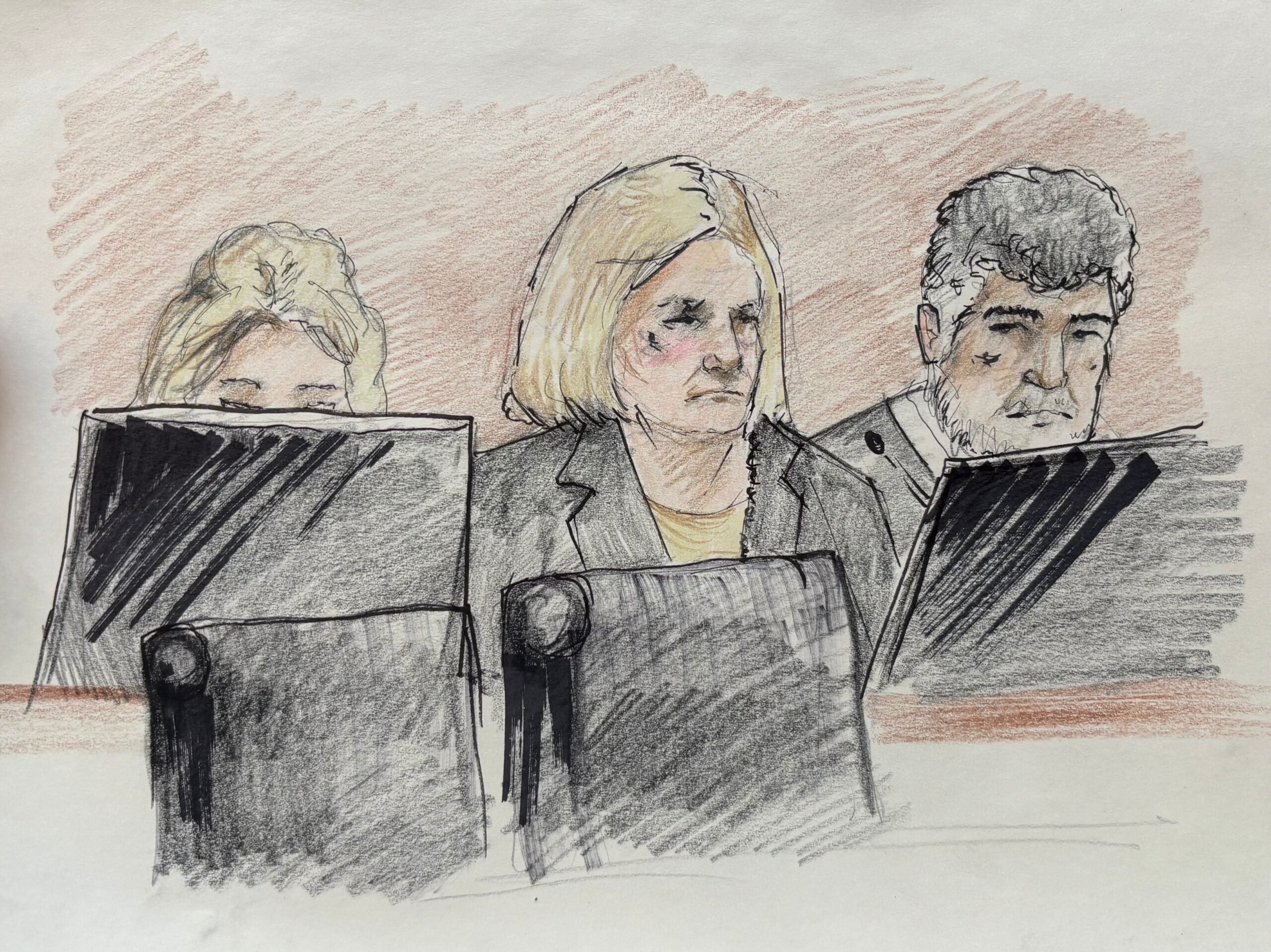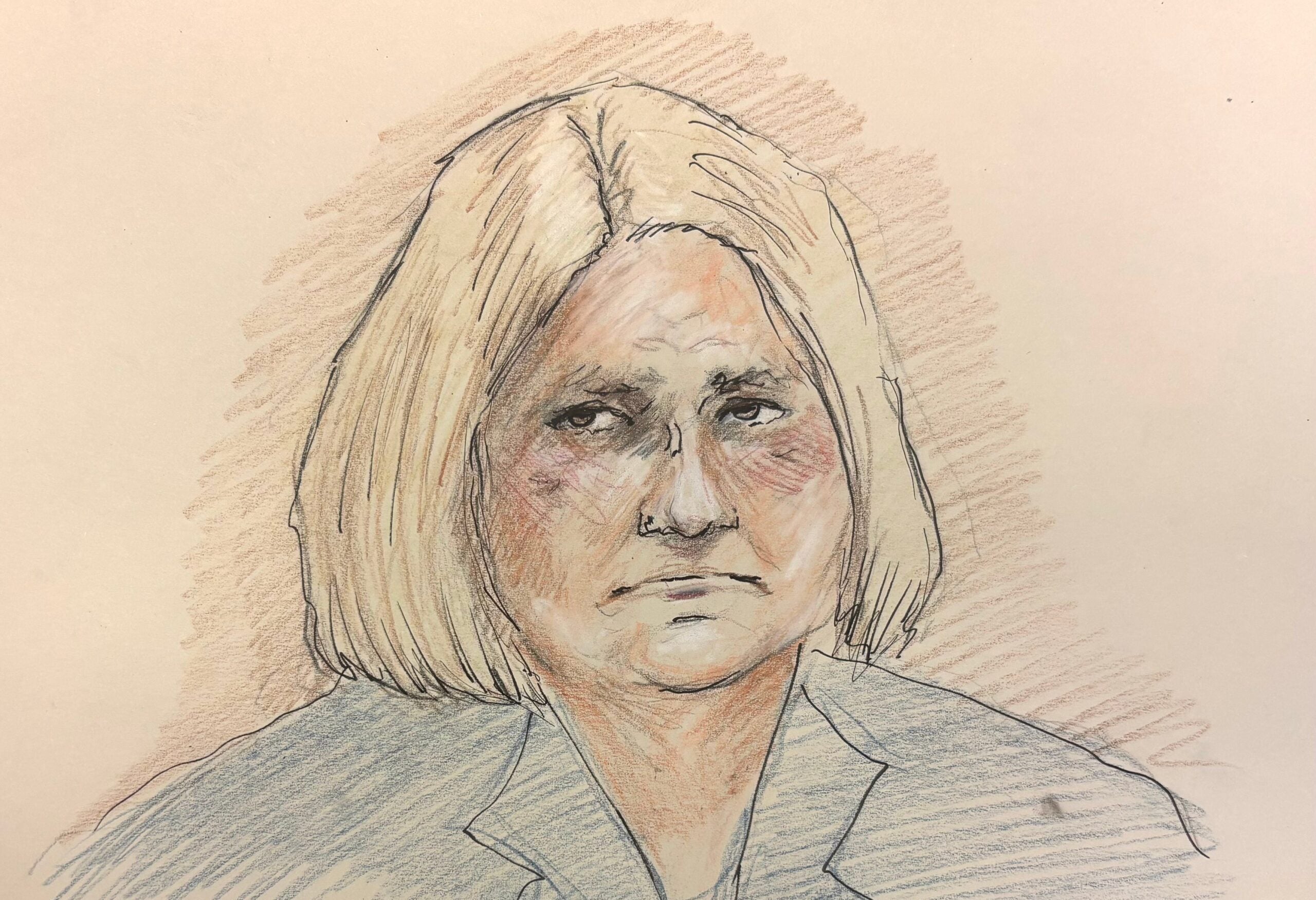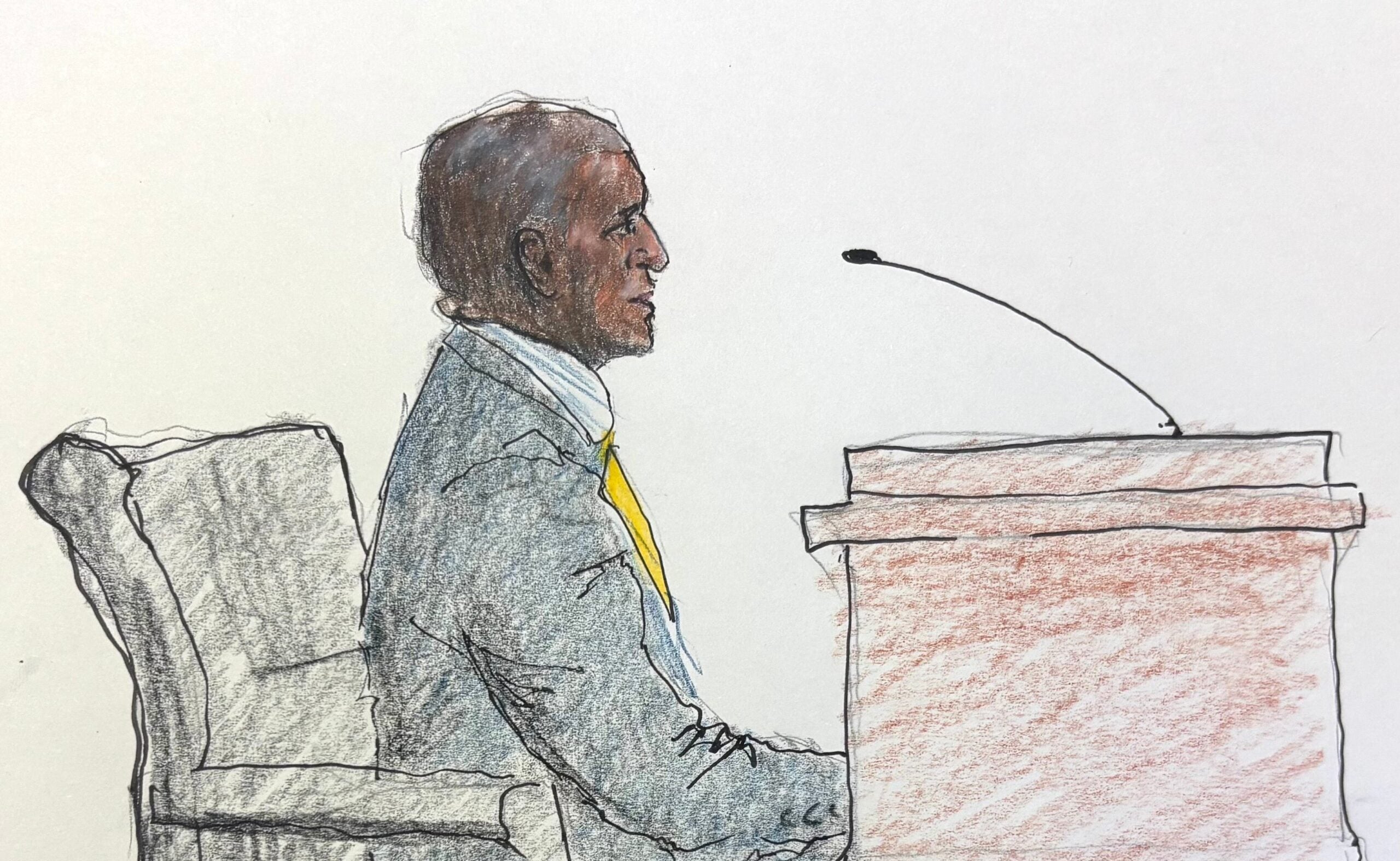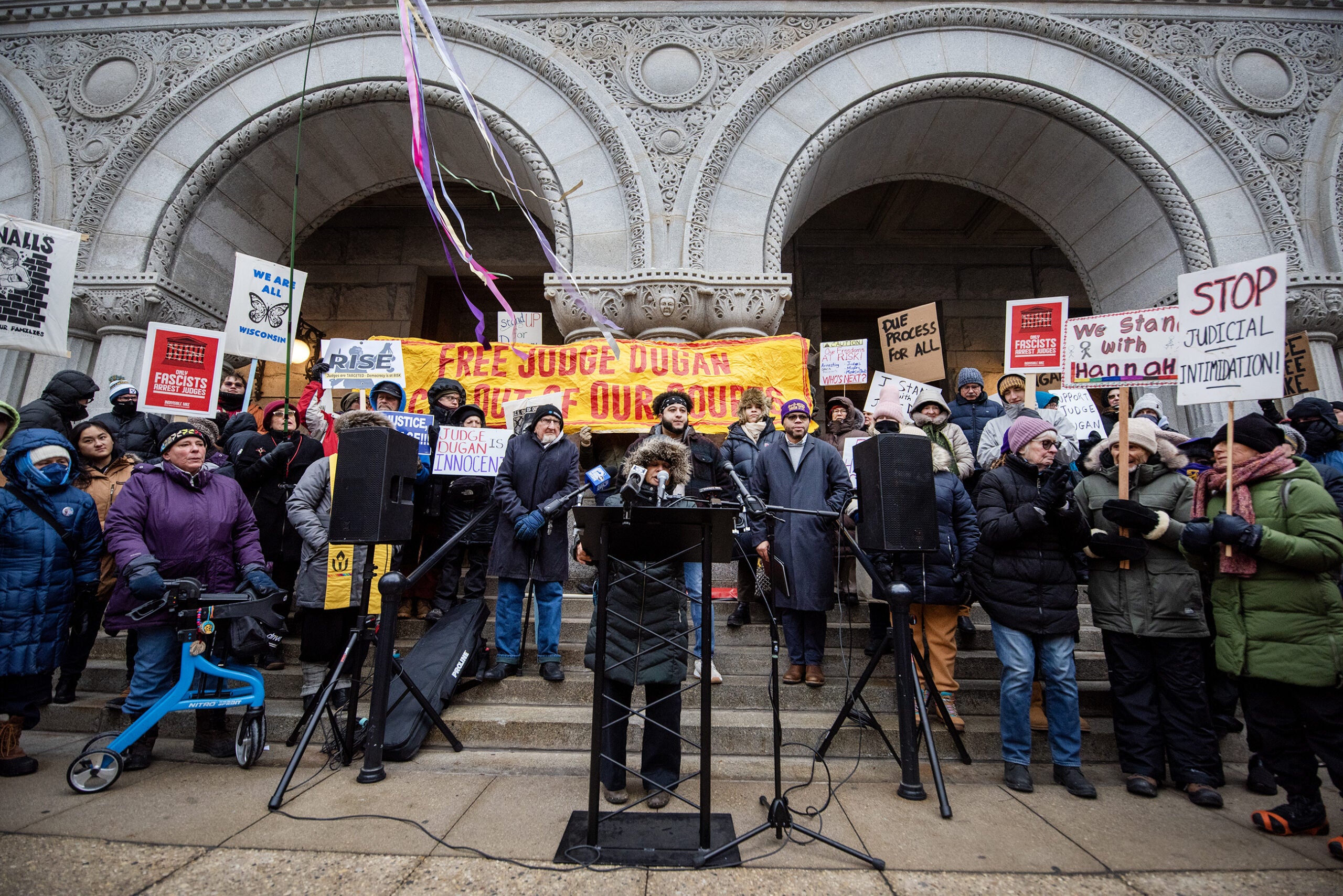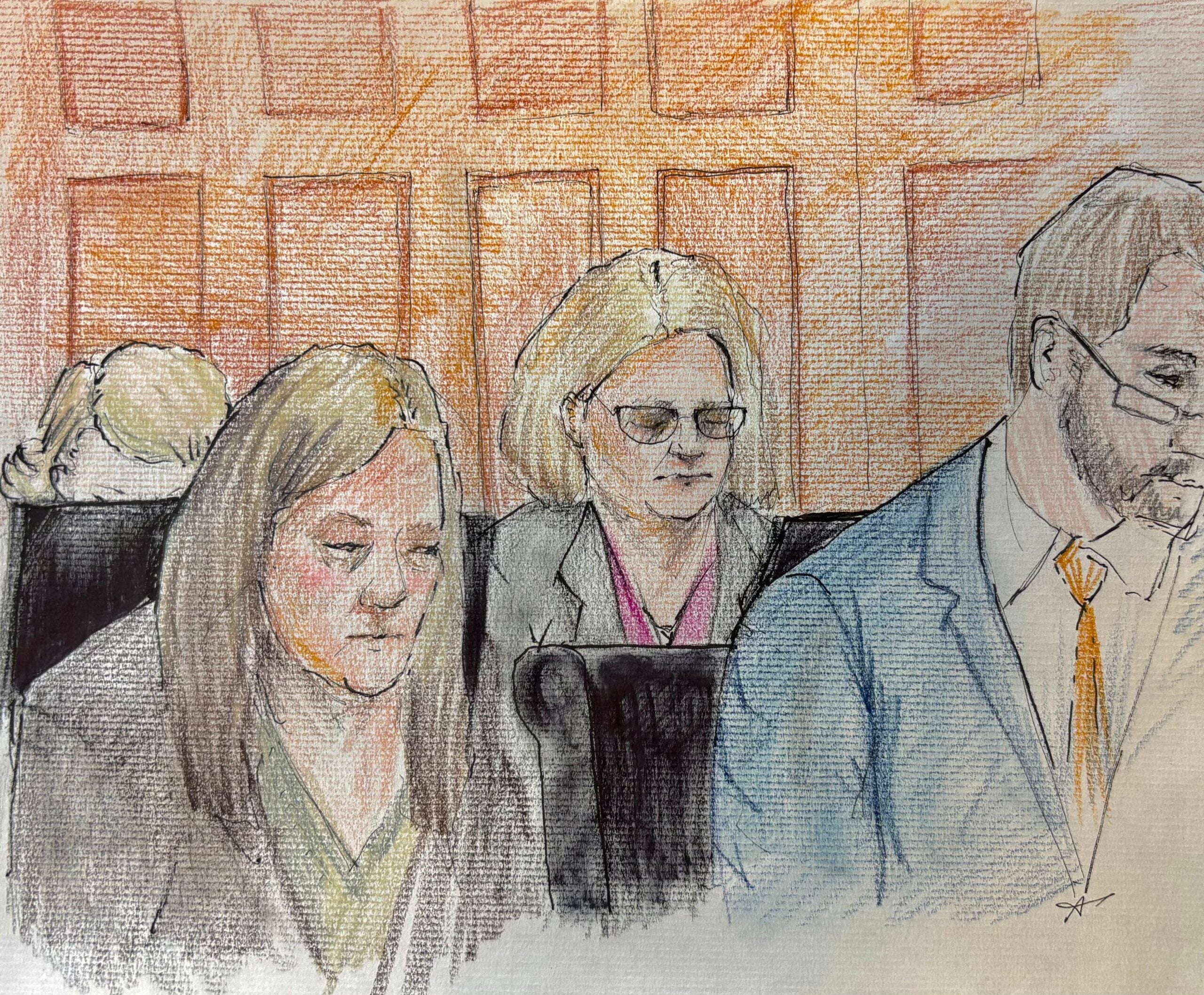The arrest of a Milwaukee County judge by the FBI last week raised alarm that the Trump administration is attacking the country’s independent judiciary. Judge Hannah Dugan was arrested for allegedly helping a person avoid arrest by U.S. Immigration and Customs Enforcement agents.
Howard Schweber, a professor emeritus of political science at the University of Wisconsin-Madison, said the case against Dugan appears to be a strong one, but it is difficult to separate from the politics surrounding it.
“We have to separate the law, the politics and the policy here if the allegations are true,” Schweber told WPR’s “Wisconsin Today.” “All I have to go on are the allegations as stated by the federal government. Yeah, it looks like the judge committed a crime…. The problem is that the politics and the policy get much messier and much more complicated.”
News with a little more humanity
WPR’s “Wisconsin Today” newsletter keeps you connected to the state you love without feeling overwhelmed. No paywall. No agenda. No corporate filter.
Schwerber talked with host Rob Ferrett about aspects of the case that people should consider.
The following has been edited for brevity and clarity.
Rob Ferrett: How unusual is it for a state judge to be arrested by federal law enforcement and charged with felonies?
Howard Schweber: It’s not completely unprecedented. During Trump’s first term, a judge in Massachusetts was arrested on very similar grounds for impeding deportation efforts. On the other hand, it’s unusual to have state judges get themselves directly involved in federal law enforcement operations, and it’s unusual to have those law enforcement operations take place in state courthouses. So every dimension of this is unusual.
RF: The judge, as the prosecutors lay things out here, allegedly interfered with this effort to arrest someone. Is this maybe just the justice system working the way it should, given what the judge is alleged to have done?
HS: According to the narrative that the government is presenting, agents identified themselves to the judge and said that they had a warrant for the arrest of someone who’s appearing in her courtroom. They did not interrupt the hearing. They just informed her. According to the allegations, she moved that guy’s proceeding to the head of the calendar, then canceled it without informing the lawyer for the U.S. government who was there in the courtroom ready to go, then walked (the defendant) off to a side entrance that led to a non-public hallway used by juries, and told him to go out that way in order to avoid federal agents.
Now, if all of that is true and that’s the whole story, then that was a crime. And you know, there’s a certain irony in supporters of Donald Trump declaring that no one is above the law, but as a general statement, that’s certainly valid. So we can start on the bare legal side of things by saying, “Yes, the feds have, according to the allegations, a good case of this judge committing a crime, and people who commit crimes ought to face punishment.”
RF: How do the politics make this messier?
HS: They caught the guy, right? The judge did not succeed in the nefarious attempt to help him escape. It is unusual to have federal authorities arresting state court judges, and politically, this could very well be a sign of a significant locus of resistance to the Trump deportation policies. State and local judges may turn out to be an unexpected line of resistance to that policy. Another Wisconsin judge, Monica Isham (of Sawyer County) has said that unless she gets guidance from the state about how her courtroom will be protected against infringement from federal agents, she will effectively go on strike and shut down her courtroom.
If this became a widespread thing, this could become a real political problem for both sides. But certainly it could be a real problem for trying to enforce the deportations that the Trump administration wants to do. It could, of course, backfire and politically be a problem for Democrats if they support these judges.
It’s yet another flash point of conflict in a political environment that is absolutely full of them. And as a matter of political judgment, perhaps the Trump Department of Justice might want to think twice about intruding its agents into courtrooms, just for that reason.
RF: Arrests in courtrooms, and also churches and school grounds, have been controversial. The concern is that if people whose immigration status is in question fear arrest, they won’t show up at courtrooms, and that’s going to create further problems, maybe for public safety. Is that a policy you’d like to see reviewed?
HS: So that’s the policy dimension. There are really a couple of different things going on. One is there are some illegal immigrants who have committed crimes and are threats to public safety. If you cannot bring them to court, if you can’t get them to come to court, if every single one of them has to be chased down, that makes it much harder to enforce relevant laws. And we’re not necessarily talking about murder and kidnapping, but we could be talking about drunk driving or domestic violence or any number of things.
More generally, it’s a policy that drives everybody underground, and that goes to the arrests at churches as well. And the more you drive this population underground, the more difficult it is to find them, the more draconian the police tactics have to be in order to find them. This is an approach that ratchets up the degree of conflict and the degree of potential violence that’s involved in carrying out this policy.
Wisconsin Public Radio, © Copyright 2026, Board of Regents of the University of Wisconsin System and Wisconsin Educational Communications Board.

